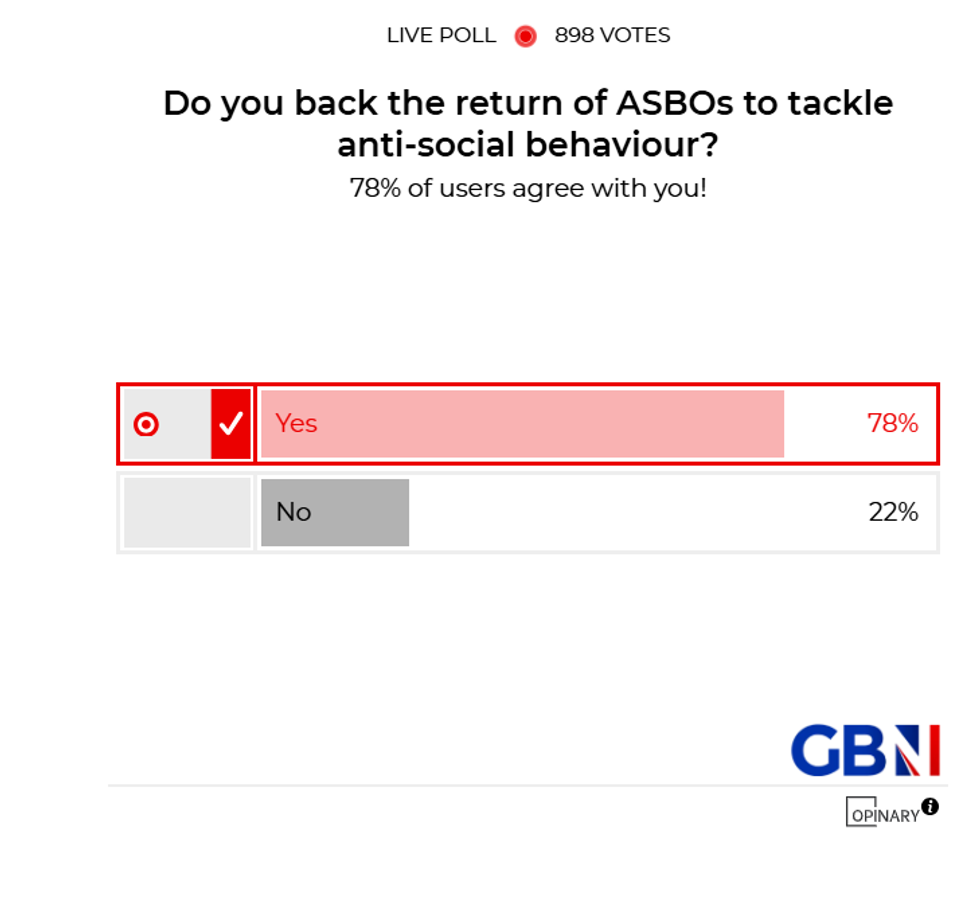POLL OF THE DAY: Do you back the return of ASBOs to tackle anti-social behaviour? YOUR VERDICT
Troublemakers causing disruption in towns and neighbourhoods could face up to two years in prison for violating new 'respect orders' introduced to combat anti-social behaviour
New Labour enforced powers echo the anti-social behaviour orders (ASBOs) previously used in England, Wales, and Northern Ireland and still in force in Scotland
Don't Miss
Most Read
Trending on GB News
Troublemakers causing disruption in towns and neighbourhoods could face up to two years in prison for violating new “respect orders,” introduced to combat anti-social behaviour.
Failure to comply with these orders—outlined in Labour’s election manifesto as part of its pledge to “restore law and order to our streets”—will be treated as a criminal offence.
Courts could impose prison sentences, unlimited fines, or require offenders to undertake unpaid work or adhere to curfews, according to the Home Office.
These measures aim to address the “most serious offenders” before their actions escalate and cause further harm, the department explained as Home Secretary Yvette Cooper unveiled the details on Friday.

POLL OF THE DAY: Do you back the return of ASBOs to tackle anti-social behaviour? YOUR VERDICT
GB News
Many communities and town centres are “plagued by anti-social behaviour,” which erodes confidence, undermines local businesses, and devastates victims, Cooper said. “This cannot be allowed to continue,” she added.
“Respect orders will provide police and councils with the tools they need to tackle persistent anti-social behaviour, ensuring offenders face consequences and helping to keep communities safe."
Alongside these powers, the addition of thousands of new neighbourhood officers and PCSOs will help the Government fulfil its mission to “take back our streets.”
Under the proposed measures, police and councils will have the authority to ban repeat offenders from town centres or drinking in public spaces like parks and high streets. Officers will also be empowered to arrest individuals who breach these orders.
The plans include measures addressing the root causes of anti-social behaviour, such as requiring offenders to attend anger management courses or rehabilitation for drug and alcohol issues.
Additionally, police will no longer need to issue warnings before seizing nuisance vehicles, expediting action against issues like off-road bikes in parks, dangerous e-scooters on pavements, street racing, and disruptive car meets.
These new powers echo the anti-social behaviour orders (Asbos) previously used in England, Wales, and Northern Ireland and still in force in Scotland. They will partially replace existing civil injunctions for adults, allowing for a broader range of penalties.
Public bodies, including social landlords, Transport for London, regional transport authorities, the Environment Agency, Natural Resources Wales, and the NHS Counter Fraud Authority, will be permitted to apply for respect orders.
Officials have announced that the measures will be introduced to Parliament as part of a Crime and Policing Bill, with a trial planned to ensure their effectiveness before rolling them out across England and Wales.
Changes to existing laws will also allow police to seize nuisance vehicles without prior warnings.
A majority of GB News members who voted in the poll back the return of ASBOs with 78 per cent voting in favour.
On the other hand, 22 per cent do not agree with their return.








